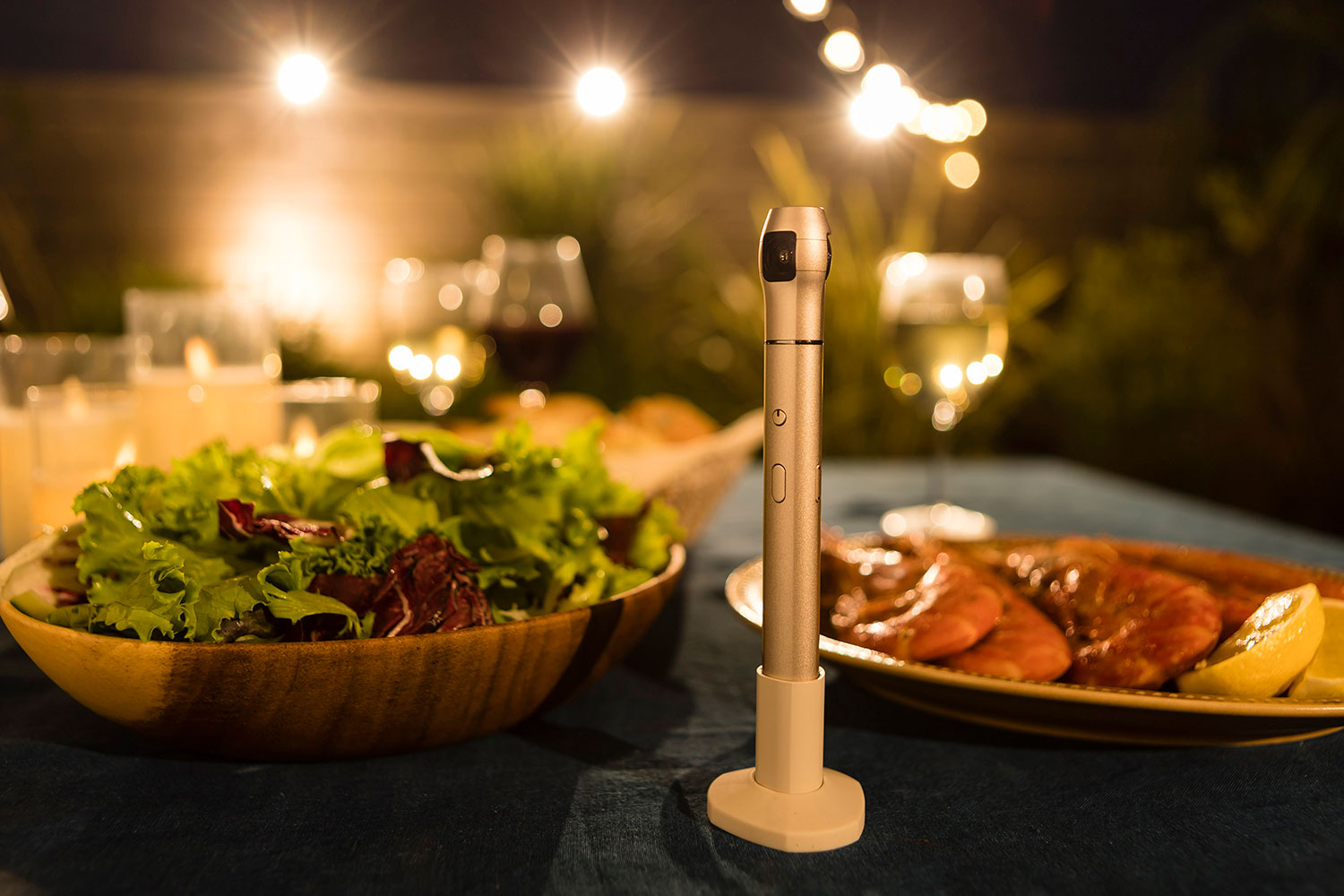The world of immersive imaging looks like it is finally figuring itself out. The Vecnos Iqui is the latest 360-degree camera to focus on reframing spherical content into a traditional fixed-frame window. Where cameras like the Rylo, Insta360 One X, and GoPro Max applied this idea to video, the Iqui does it for 360 still photos, as well.
The Iqui is the first product from Vecnos, a new company spun off from Ricoh. Ricoh was a pioneer in 360 imaging with its Theta cameras, so the Iqui has a strong history in the segment behind its development. But it is completely different from any other 360 camera, Theta or otherwise, and uses an innovative design with four lenses. It sounds counterintuitive, but compared to the usual dual-lens design, this is actually what enables the Iqui’s slim, pen-like shape.
The Iqui has three lenses around its circumference and one on the top, reducing the field of view any one of the lenses is required to capture and thus allowing all lenses to be made smaller compared to the bulbous 180-degree lenses of a dual-lens 360 camera like the Theta.
Designed to be used in tandem with a phone, the Iqui comes with a non-expandable 14.4 gigabytes of internal memory. Images and videos are automatically deleted after being transferred to a phone, which should help ensure there’s always free space on the camera without the customer having to worry about manually deleting files or formatting the memory.
Within the Iquispin app (iOS or Android), spherical images can be transformed into animated, fixed-frame videos with the touch of a button. Where other 360 camera apps have allowed people to manually set keyframes for orientation and zoom, Iquispin instead serves up a collection of pre-made animations, along with effects like floating bubbles or hearts that animate as if part of the three-dimensional scene in the photo. Just set the starting point, and the app handles the rest. Videos are saved at 720 x 720 pixels, not exactly high resolution, but sufficient for Instagram.
Released this summer, the Iquispin app is actually compatible with any 360 camera, but a few features will be exclusive to the Iqui when it launches October 1. These include a number of effects and filters as well as the option to remove the Iquispin watermark.
With four lenses, the Iqui also needs four different sensors. Despite this, the Iqui will be relatively affordable at a price of $299. Digital Trends is currently testing the Iqui and we will share our experience with it in a future review.






